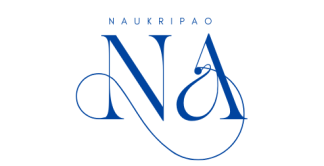
In today’s competitive job market, being well-prepared for interviews is crucial. One of the most effective ways to sharpen your interview skills is through mock interviews. This blog post will delve into the concept of mock interviews, their importance, and provide you with six essential tips to ace your next interview.
What is a Mock Interview?
A mock interview is a simulation of an actual job interview, designed to help candidates prepare for the real thing. It mimics the environment, format, and types of questions you might encounter in a genuine interview scenario. The primary purpose of a mock interview is to provide job seekers with an opportunity to practice their interview skills, receive feedback, and improve their performance.
Mock Interview Meaning
The term “mock interview” essentially means a practice or pretend interview. It’s a rehearsal that allows you to:
- Familiarize yourself with common interview questions
- Develop and refine your responses
- Improve your body language and communication skills
- Reduce anxiety and build confidence
- Identify areas for improvement
The Importance of Mock Interview Practice
Engaging in mock interview practice offers numerous benefits:
- Builds confidence: Regular practice helps you feel more self-assured during the actual interview.
- Reduces stress: Familiarity with the interview process can significantly lower anxiety levels.
- Improves communication: You learn to articulate your thoughts clearly and concisely.
- Identifies weaknesses: Feedback from mock interviews helps you recognize and address areas that need improvement.
- Enhances performance: Consistent practice leads to better overall interview performance.
𝐑𝐞𝐚𝐝 𝐂𝐨𝐦𝐩𝐚𝐬𝐬𝐢𝐨𝐧𝐚𝐭𝐞 𝐋𝐞𝐚𝐯𝐞- 𝐌𝐞𝐚𝐧𝐢𝐧𝐠, 𝐒𝐚𝐦𝐩𝐥𝐞𝐬, 𝐚𝐧𝐝 𝐇𝐨𝐰 𝐭𝐨 𝐀𝐩𝐩𝐥𝐲
6 Essential Preparation Tips for Mock Interviews
1. Research Common Mock Interview Questions
To make the most of your mock interview practice, it’s crucial to familiarize yourself with frequently asked questions. Some common mock interview questions include:
- Tell me about yourself.
- What are your strengths and weaknesses?
- Why do you want to work for our company?
- Where do you see yourself in five years?
- Describe a challenging situation at work and how you handled it.
Preparing thoughtful answers to these questions will help you feel more confident and articulate during the actual interview.
2. Choose the Right Mock Interview Format
There are several formats for conducting mock interviews:
a) In-person Mock Interviews
These simulate face-to-face interviews and are ideal for practicing non-verbal communication and body language.
b) Online Mock Interviews
With the rise of remote work, online mock interviews have become increasingly popular. They help you get comfortable with video conferencing tools and virtual interview etiquette.
c) Phone Mock Interviews
These are useful for practicing clear verbal communication without relying on visual cues.
Choose the format that best aligns with the type of interview you’re likely to encounter in your job search.
3. Dress Appropriately and Set the Stage
Treat your mock interview as if it were the real thing. This means:
- Dressing in professional attire
- Setting up a distraction-free environment
- Ensuring good lighting and a clean background for online mock interviews
- Having the necessary materials (resume, portfolio, pen, and paper) ready
By recreating the actual interview conditions, you’ll feel more prepared and confident when the real opportunity arises.
4. Practice Active Listening and Engaging Responses
During your mock interview practice:
- Pay close attention to the questions asked
- Take a moment to gather your thoughts before responding
- Provide concise yet comprehensive answers
- Use the STAR method (Situation, Task, Action, Result) for behavioral questions
- Ask relevant questions about the role and company
Remember, an interview is a two-way conversation. Showing genuine interest and engagement can set you apart from other candidates.
5. Work on Your Body Language and Non-verbal Cues
Non-verbal communication plays a significant role in how you’re perceived during an interview. Focus on:
- Maintaining good posture
- Making appropriate eye contact
- Offering a firm handshake (for in-person interviews)
- Using natural hand gestures to emphasize points
- Avoiding nervous habits like fidgeting or playing with your hair
Practice these elements during your mock interviews to ensure they become second nature.
6. Seek Constructive Feedback and Implement Improvements
The most valuable aspect of mock interviews is the feedback you receive. To make the most of this:
- Choose a mock interviewer who can provide honest, constructive criticism
- Record your mock interviews (audio or video) for self-review
- Take notes on areas that need improvement
- Implement the feedback in subsequent mock interviews
- Track your progress over time
Remember, the goal is continuous improvement, so be open to feedback and willing to make necessary changes.
How to Conduct an Effective Online Mock Interview
With the increasing prevalence of remote work, online mock interviews have become more relevant than ever. Here are some tips for conducting an effective online mock interview:
Choose the Right Platform
Select a video conferencing tool that you’re likely to use in actual online interviews, such as Zoom, Skype, or Google Meet. Familiarize yourself with the platform’s features before the mock interview.
Test Your Technology
Before the mock interview:
- Check your internet connection
- Test your camera and microphone
- Ensure your device is fully charged or plugged in
- Close unnecessary applications to avoid distractions
Set Up Your Space
Create a professional background and ensure good lighting. Position your camera at eye level and maintain an appropriate distance from the screen.
Practice Virtual Etiquette
During the online mock interview:
- Look directly into the camera to simulate eye contact
- Minimize background noise
- Avoid checking your phone or other distractions
- Be prepared for potential technical issues
Common Mock Interview Questions and How to Answer Them
To help you prepare, here are some frequently asked mock interview questions and tips on how to answer them:
1. “Tell me about yourself.”
This is often the opening question. Keep your answer concise and relevant to the job you’re applying for. Highlight your key skills, experiences, and career goals.
2. “Why do you want to work for our company?”
Show that you’ve done your research. Mention specific aspects of the company’s culture, values, or projects that align with your career goals and interests.
3. “What are your greatest strengths?”
Choose strengths that are relevant to the job description. Provide specific examples of how you’ve demonstrated these strengths in past roles.
4. “What is your greatest weakness?”
Be honest, but choose a weakness that isn’t critical to the job. More importantly, explain how you’re working to overcome this weakness.
5. “Where do you see yourself in five years?”
Align your answer with realistic career progression within the company or industry. Show ambition, but also demonstrate loyalty and commitment.
6. “Describe a challenging work situation and how you overcame it.”
Use the STAR method to structure your response. Choose a situation that highlights your problem-solving skills and ability to work under pressure.
Conclusion
Mock interviews are an invaluable tool in your job search arsenal. They provide a safe environment to practice and refine your interview skills, helping you feel more confident and prepared for the real thing. By understanding what a mock interview is, implementing the preparation tips outlined in this blog, and consistently practicing, you’ll significantly increase your chances of success in actual job interviews.
Remember, the key to mastering interviews lies in thorough preparation and regular practice. Whether you opt for in-person mock interviews or online mock interview sessions, the experience you gain will be invaluable. So, embrace the opportunity to engage in mock interview practice, ask for feedback, and continuously improve your skills. With dedication and perseverance, you’ll be well-equipped to ace your next job interview and land your dream role.
